
Doctors and nurses seldom learn in school how to tell a family that their loved one is not going to survive. Yet health care professionals face the immense burden of tragedy, illness and dying in an intensely stressful setting as a routine, ongoing part of their jobs.
Long before the COVID-19 pandemic, research was documenting rampant stress and burnout among health care professionals.
The effects of this crisis are widespread in the U.S. In 2022, Surgeon General Dr. Vivek Murthy raised concerns about the alarming levels of burnout in the health care community in the midst of the COVID-19 pandemic.
Studies show that if current trends continue, the U.S. will see a shortage of 1.1 million registered nurses, 3 million other health care workers and over 140,000 physicians by 2033. A 2022 Mayo Clinic study reported that only 58% of physicians would choose to become a doctor again if offered a chance to revisit their career choice, dropping from 72% from just one year before.
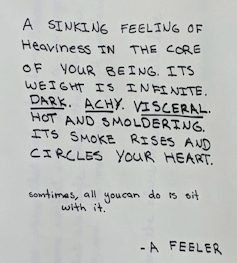
CORAL
For nearly two decades, our research group – a team of physicians, researchers, creative arts therapists and writers – has focused on understanding the impact of work-related stress on health care workers. In our experience, almost every health care worker has a story about navigating the times when the weight of the profession is just too much to bear.
To help address this issue, in 2019, with funding from the National Endowment for the Arts, our team established the Colorado Resiliency Arts Lab, or CORAL. Our aim is to use creative arts therapy as an intervention to improve the well-being of health care professionals and to restore their sense of purpose in these demanding work environments.
As physicians who have worked in critical care and emergency medicine for many years, we think that this incorporation of creativity in health care is vital. The nation’s health depends on the well-being of the health care workforce. We believe that incorporating creativity and the arts as a tool for building resiliency in health care workers could help shift the culture of emotional isolation that health care workers live in.
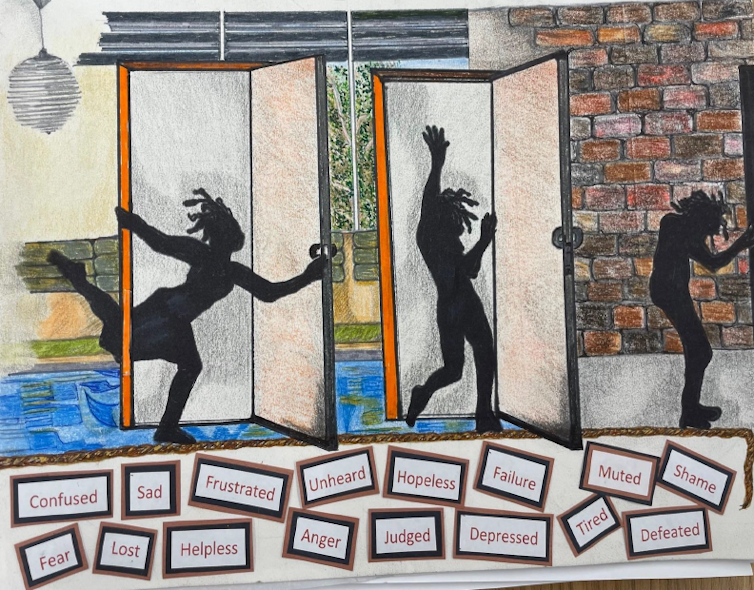
CORAL
Table of Contents
A challenge long in coming
We as health care workers push ourselves to the limits to learn new ways to enhance human health. The irony is that this often comes at the expense of our own physical, emotional and mental health. We learn to mask emotions and internalize all the negative events we see in health care. But that is unsustainable.
In the 2000s, up to 80% of critical care nurses reported experiencing burnout or other forms of psychological distress. This was contributing to a high turnover rate, with 67% of nurses planning to leave their positions within three years. That was leading to a rise in health care costs, compassion fatigue among workers and diminished quality of care for patients.
Then came the COVID-19 pandemic, which intensified the stress on health care workers: 3 in 5 physicians reported burnout during the height of the omicron variant in 2022.
A combination of higher job demands, workload, job complexity, job pressure and intensive working time during the COVID‐19 pandemic increased stress among health care professionals and led to emotional exhaustion.
Satisfaction with work-life balance dropped from 46.1% in 2020 to 30.2% in 2021.
In the post-COVID-19 era, health care workers like us are at higher risk for anxiety, depression and post-traumatic stress disorder. Burned-out health care professionals are unlikely to seek professional treatment and, as a result, tend to experience heightened levels of substance use, depression and suicidal thoughts.
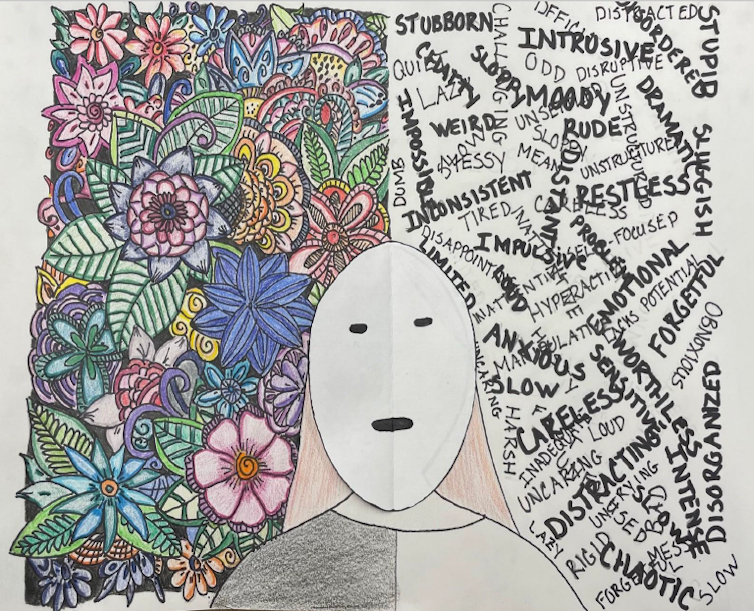
CORAL
Art as a way forward
In ancient Greece and Rome, participation in the arts was “prescribed” for people with depression or anxiety. Likewise, for centuries, tribal communities have used dance, music and art to facilitate physical and mental healing in individuals.
Our focus at CORAL has been on teaching health care workers how to use art-making to effectively process trauma and develop coping mechanisms through expression and community. We invite our participants, who include doctors, nurses, social workers, therapists and researchers, to tap into their authentic vulnerabilities and share stories they would not normally tell by using pen and paper, paintbrushes, guitars, songwriting and movement.
From 2020 to 2023, we carried out six cohorts of our 12-week clinical trial of creative arts therapy interventions involving health care professionals working at least half-time. Participants were randomly assigned to one of four creative arts therapy groups: art, music, dance/movement and writing, with 12 weekly sessions lasting 90 minutes each.
We measured participants’ levels of anxiety, depression, burnout, PTSD and job satisfaction through validated questionnaires and asked the same questions again after the conclusion of the intervention. We also measured those scores in a control group that did not take part in the intervention.
The results were eye-opening. Study participants experienced less burnout and expressed a lower desire to leave their jobs. Burnout scores for anxiety, depression, PTSD and emotional exhaustion decreased by 28%, 36%, 26% and 12%, respectively, in the participants receiving the creative arts therapy intervention. These improvements remained up to one year after the conclusion of the program.
Our findings add to the growing body of evidence that creative arts therapy can be an effective tool for dealing with health care worker burnout across the globe.
We believe that creative art therapy is effective because it allows these health care professionals to be imperfect – freedoms that can be healing in and of themselves. They can use these opportunities to speak the unspeakable through an art form, which becomes a vehicle to help explore and recover from trauma.
This in turn can increase their tolerance for imperfection as well as helping them to feel grace and compassion for themselves and each other. It expands their emotional vocabularies and, in so doing, builds their resilience.
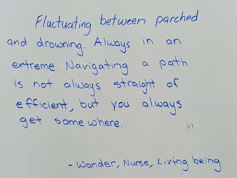
CORAL
Remembering what it means to be human
Though the roles of doctors, nurses and other health care professionals are often glorified through terms such as “superheroes” and “guardian angels,” in reality they are human beings who make mistakes and get exhausted too.
The creative process invites them to remember what it means to be human, to be vulnerable. A health care professional picking up a paintbrush for the first time since kindergarten can explore feelings that have been suppressed, memories that have been buried – and even forgiveness for mistakes they may have held onto for years.
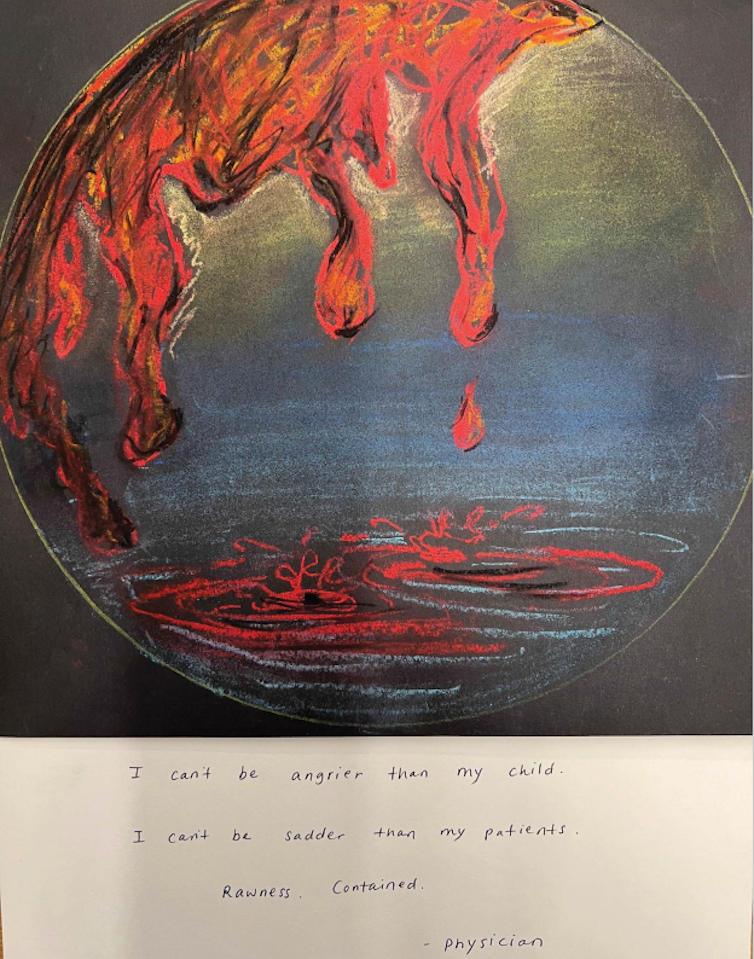
CORAL
One participant in the CORAL program wrote in their feedback: “When I am given space to unmask and show all sides of who I am, I am creative and engaged. I think more deeply and clearly. I am more willing to take the risks necessary to have breakthroughs. I am a better colleague, mentor, friend, partner, and scientist. When I feel safe and supported, I can be whole.”
![]()
On behalf of the University of Colorado, Marc Moss receives grant funding from the National Endowment of the Arts.
Rafaela Mantelli works for the University of Colorado and is a member of the Colorado Resiliency Arts Lab.
























